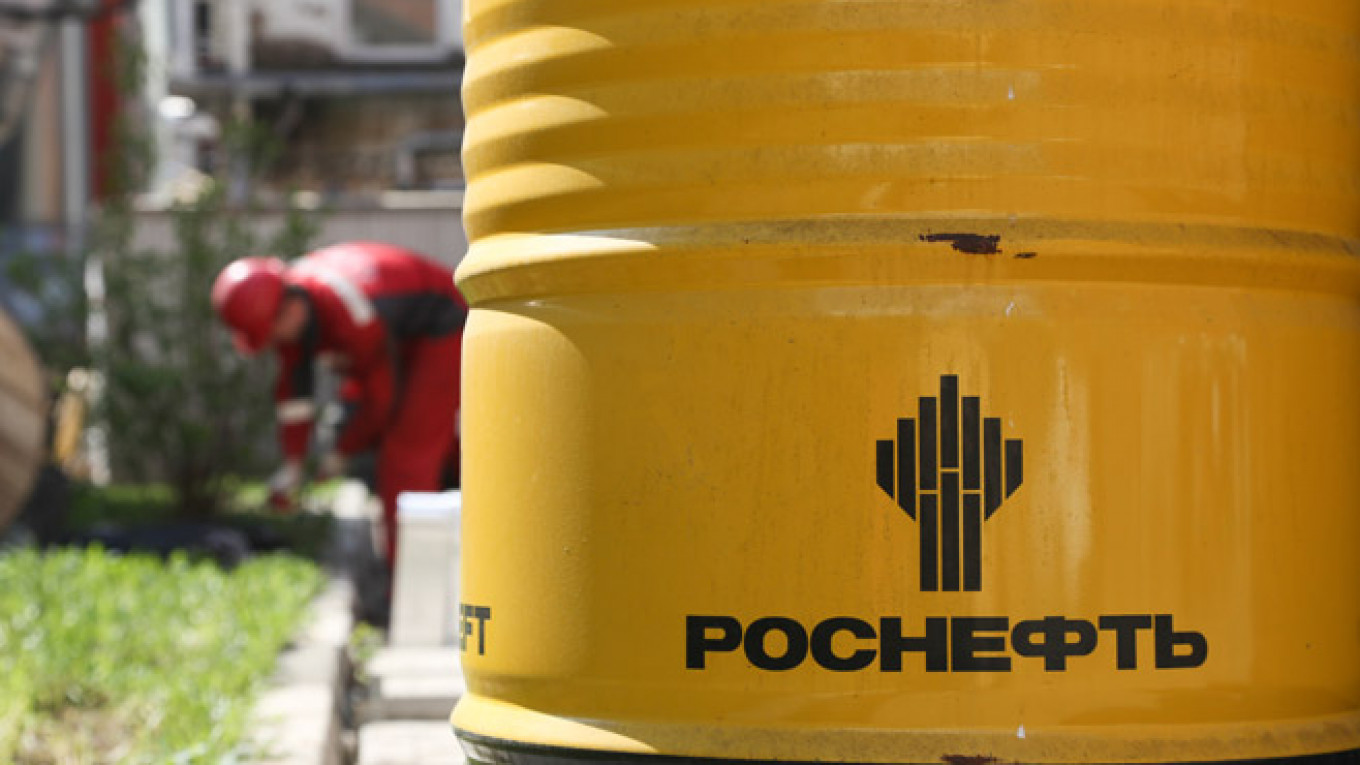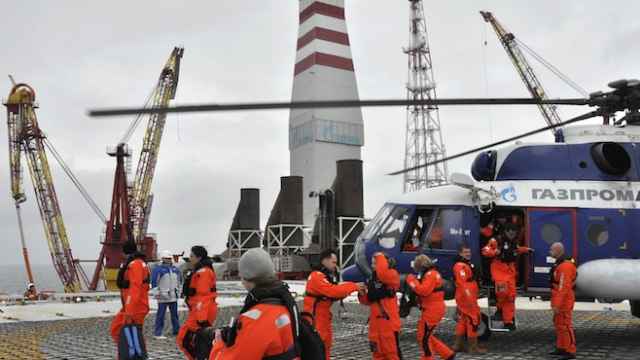Russia's top crude oil producer Rosneft said Saturday that it had made an oil discovery jointly with ExxonMobil at an offshore Arctic field, which has been at the center of controversy due to Western sanction against Moscow.
But further progress at the site is likely to be problematic as international oil majors have to wind down work in Russia due to Western sanctions following the Ukraine crisis.
Rosneft and its head Igor Sechin were among the targets of the sanctions, imposed over Moscow's role in the Ukrainian conflict, which has claimed the lives of more than 3,000 people.
The sanctions, introduced by the United States and European Union, effectively freeze access by Russian companies to foreign technology and ban Western companies from cooperating in the Arctic, as well as in shale exploration and deep-water drilling.
Rosneft said Saturday that it and ExxonMobil had successfully completed drilling of the Universitetskaya-1 well, the most northerly well in the world, located in the East-Prinovozemelskiy-1 license area in the Kara Sea oil province, where oil reserves are estimated to be comparable to those of Saudi Arabia.
"The first oil was extracted. It is an astonishing sample of light oil, which based on the results of the analysis performed, is comparable to Siberian Light oil," Sechin said in a statement on Rosneft's website. He said Rosneft would like to call the discovered field "Pobeda," Russian for victory.
But it was not yet clear whether commercially viable quantities of oil could be recovered from the well. Rosneft said data from the well will be analyzed and only then could a conclusion be reached on the reserves there.
Short Extension
Exxon and Rosneft signed a $3.2 billion agreement in 2011 to develop the region.
Exxon said last week that the U.S. Treasury Department had given it a short extension to wind down a rig at the well, beyond the 14 days outlined in the sanctions targeting Western cooperation in Russia's oil sector.
Russia is one of the world's top crude producers and the biggest supplier to Europe, but its reservoirs are in decline and it must look to new sources to retain its positions. Large-scale offshore oil production in Arctic is not expected before the middle of the next decade.
Before sanctions, Rosneft had planned to tap other parts of the offshore Arctic, key for the future oil production in Russia, jointly with Exxon. A Rosneft spokesman declined to comment on whether those projects will go ahead in the light of sanctions.
The prospect of sanctions on Russia has been a big issue for Exxon this year. It spent $6 million on lobbying the U.S. government in the first half of 2014 and listed Russian sanctions as one of its lobbying issues, according to disclosures filed to the U.S. Senate.
Exxon also paid about another $170,000 to four outside firms for lobbying in the second quarter, largely tied to Russian sanctions, the disclosures show.
A Message from The Moscow Times:
Dear readers,
We are facing unprecedented challenges. Russia's Prosecutor General's Office has designated The Moscow Times as an "undesirable" organization, criminalizing our work and putting our staff at risk of prosecution. This follows our earlier unjust labeling as a "foreign agent."
These actions are direct attempts to silence independent journalism in Russia. The authorities claim our work "discredits the decisions of the Russian leadership." We see things differently: we strive to provide accurate, unbiased reporting on Russia.
We, the journalists of The Moscow Times, refuse to be silenced. But to continue our work, we need your help.
Your support, no matter how small, makes a world of difference. If you can, please support us monthly starting from just $2. It's quick to set up, and every contribution makes a significant impact.
By supporting The Moscow Times, you're defending open, independent journalism in the face of repression. Thank you for standing with us.
Remind me later.






